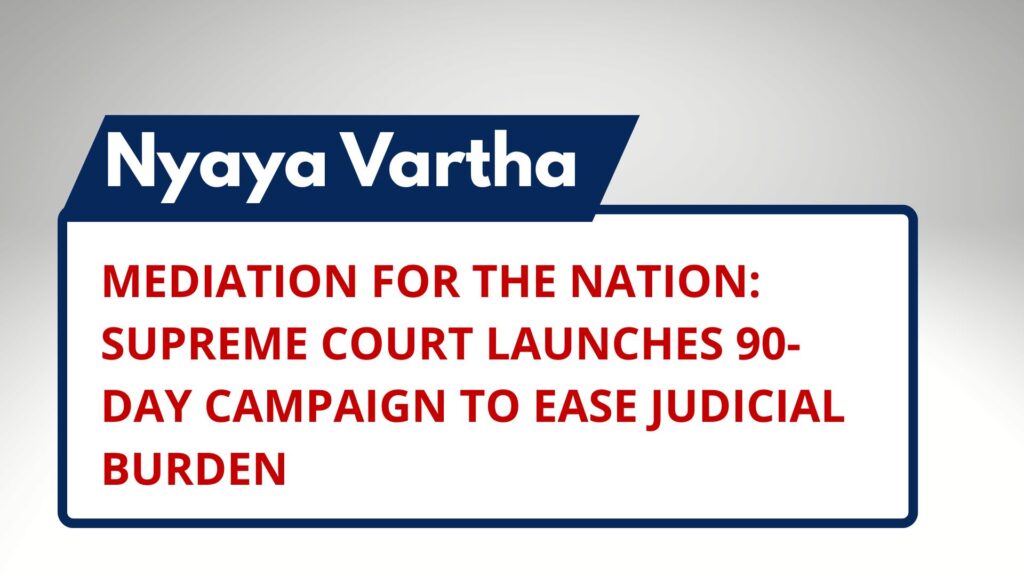
By Nyaya Vartha Bureau
“Hear the Law, Know Your Rights”
New Delhi, July 1: In a concerted effort to address the ever-growing backlog of cases across Indian courts, the Supreme Court has rolled out a nationwide campaign titled ‘Mediation for the Nation’, which aims to promote alternative dispute resolution mechanisms through structured mediation.
The campaign, which spans from July 1 to September 30, 2025, will operate at all levels of the judiciary — from Taluk Courts to High Courts — with the goal of disposing of eligible pending cases through amicable settlements.
A Collaborative Initiative
The initiative is spearheaded by the Supreme Court Mediation and Conciliation Project Committee (MCPC) in partnership with the National Legal Services Authority (NALSA). Both institutions have been instrumental in institutionalizing mediation as a viable and effective dispute resolution tool within the Indian legal framework.
Why Mediation Matters
With over 4.5 crore cases pending across the Indian judiciary, delays in the delivery of justice remain a pressing concern. Courts are overburdened, and litigants often face prolonged litigation, which hampers trust in the system.
Mediation provides a voluntary, confidential, and non-adversarial alternative that encourages parties to arrive at mutually agreeable solutions. The process not only reduces the number of pending cases but also helps to:
Alleviate the burden on the judiciary
Ensure speedy disposal of disputes
Promote harmonious resolution of conflicts
Reduce the chances of future litigation among the parties
Structured Approach to Mediation
The campaign adopts a methodical approach:
1. Case Identification – Courts will identify cases best suited for mediation.
2. Awareness & Communication – Parties involved are briefed about the mediation process.
3. Facilitated Negotiations – Trained mediators guide the discussions to help parties find common ground.
4. Agreement Drafting – Upon reaching consensus, a written agreement is prepared.
5. Judicial Affirmation – The agreement is presented before the court for legal recognition and enforcement.
Towards Judicial Efficiency
Legal experts have welcomed the move, noting that a focused mediation drive can significantly enhance judicial efficiency and improve access to justice. Moreover, it fosters a culture of dialogue and cooperation, which is essential in a diverse society like India.
As the campaign unfolds, all eyes will be on how effectively it reduces the pendency and promotes dispute resolution through peaceful dialogue.
